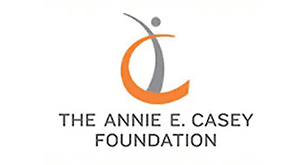PERSONAL EXPERIENCES OF PROGRAMS AND POLICIES
The movement toward employing professionals with personal experiences with systems is rooted in both moral arguments and practical considerations:
- Including community voices leads to equity.
- User feedback is a basic principle of improving any product or service.
“Our takeaways from this paper are straightforward: When you bring personal experience into program design, outcomes improve; and doing that work correctly requires shifts in mindsets, power and resources,” says the paper’s authors Anthony Barrows, founder of the Center for Behavioral Design and Social Justice, and Kalila Jackson-Spieker in the report summary. “We hope this paper is a helpful guide for anyone interested in beginning or expanding their own efforts to let the voices of affected communities lead their work.”
The report’s findings about engaging with people with personal experience include:
- Service providers improved their knowledge of — and empathy for — program participants, which are crucial for designing better services.
- Community influence on decision-making increased, and networks advocating on behalf of the populations they represent grew stronger.
- Shared design of services increased the quality and efficiency of programs in such areas as community mental health and substance abuse treatment.

